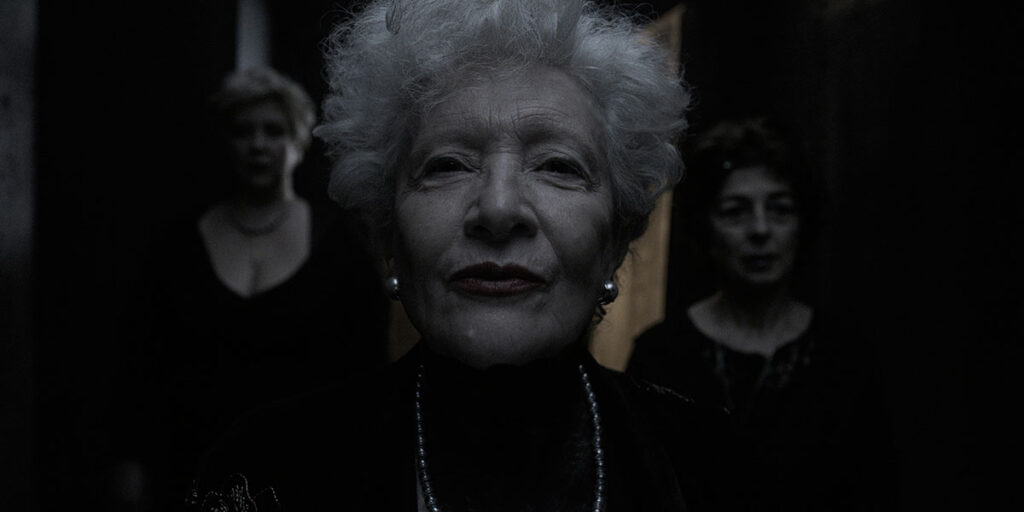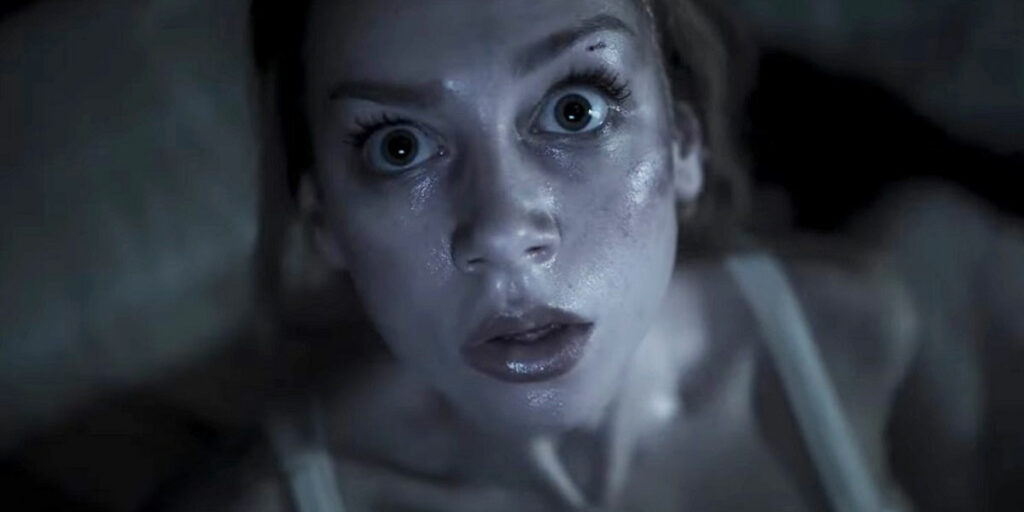Venus may be messy and narratively faulty, but director Jaume Balagueró delivers some high-octane and blood-drenched fun with a badass performance by Ester Expósito.
Although Cannibal Holocaust was the film that shook up and utterly horrified the horror world by “introducing” the found-footage subgenre, it was The Blair Witch Project (1999) and REC (2007) that moved it to a bigger landscape. These two films weren’t the first of their kind, but they shifted the world with their documentary approach to delivering huge frights through tales of witches, haunting, viruses, and potential zombies. The latter, Jaume Balagueró and Paco Plaza’s hit REC, caused significant moves in the international horror markets, and plenty of filmmakers wanted to make their own version of the film. To this day, many directors are influenced by said work. Who could blame them? REC is a compelling found-footage horror movie with carefully timed scares and swift camera movements. Three sequels were made, and the final two installments of the horror franchise weren’t up to par with the initial two. This sort of thing always happens with many horror franchises: the first two films are good, but the rest flounder because it is a repetition of what was done before, yet without efficacy and scares.
Since then, Jaume Balagueró and Paco Plaza kept working on other projects, adopting different styles, and even dwelling on other genres. Then, the pandemic arrived. Everyone was trapped inside their homes. The outside world was turning darker by the minute. And that’s when Balagueró started to plot things out. This isolation reminded him of the film that began his career, motivating him to concoct a movie that was reminiscent of REC while adding elements of Lovecraftian cosmic horror into its veins. With the help of producer Álex de la Iglesia (director of the cult classic The Day of the Beast), Balagueró helms Venus, the latest entry into the feature film series “The Fear Collection” and a modern update of H.P. Lovecraft’s short story “The Dreams in the Witch House,” with action-horror trappings and crime narratives attached to the story.
On paper, it may all seem like a mess. And it actually is pretty messy. Yet, for the most part, Balagueró finds a way to frighten and entertain, creating a blood-drenched and violent ride that’s a perfect fit in the Toronto International Film Festival’s Midnight Madness slot. Venus centers around go-go dancer Lucía (Ester Expósito), who wants to leave her job at the nightclub behind but finds it hard to do so. The club is run by mischievous people, crime organizers, and gang members. One day, Lucía sneaks mid-shift to the back offices to steal a duffel bag full of designer drugs from her corrupt bosses, but, as you may expect, it doesn’t go as she planned. She gets caught and barely escapes with her life and the drugs.
Based on her knowledge of the people she works with, Lucía worries that, if she goes home, the boss and his henchmen will find her quickly. And bad things are going to happen if they catch her. So, the young dancer seeks shelter with her estranged older sister, Rocío (Ángela Cremonte), and niece, Alba (Inés Fernández), on the Edificio Venus, located in the Madrid suburbs. Lucía senses that there’s something off in the apartment. Her sister and the building that she lives in have secrets of their own; strange things begin to happen once an unexpected solar eclipse arrives. Lucía will have to step up and protect her niece against the horrific cosmic forces and the cruel mobsters.

At its core, Venus is a story about loss, alienation, and searching for a better life. That story is somewhat lost amidst the crimson red being poured all over the apartment, Lovecraftian horrors, and mythology of the Queen of Sorrows. Yet, there are some small sparks of it in its moments of closeness. Overall, the film’s a bit messy, as it wants to dwell on several subgenres of the comedic and horrific senses. Some, if not the majority, of Venus’ story makes sense: despite its narrative disarray, its taking a bit to “get going”, and some twists that you can see coming early on, it is quite an entertaining watch.
On paper, Venus shouldn’t work, as the combination of genres like crime, dark comedy, and cosmic horror is quite hard to manage. Still, even though the film’s story structure is evidently fractured, Balagueró finds a way to amuse audience members via some gory and blood-soaked moments (presented by both CG and practical effects), and high-intensity sequences. Although Venus constantly offers horror elements, Balagueró focuses on Lucía’s current predicament with the crime bosses, relying on siege film trappings and the sensation of continually feeling hunted. Because that is the main focus, the cosmic horror components slowly develop in the background until its thrill-packed last act arrives. The problem with such dynamics is that the film’s narrative is always embedded in the present, which leaves little room for backstory and development, primarily of the sisterly relationship between Lucía and Rocío. This causes the emotional moments between them to have little impact on the viewer. At least, the scenes where Lucía bonds with her niece somewhat make up for those lost and wasted moments.
Expósito and Fernández deliver solid performances and have great chemistry that does the heavy lifting in the film’s weakest scenes. Between the two, the badass lead, Expósito, shines throughout, showcasing her talent as a horror screen magnet and heroine in that anxiety-inducing grand finale. The parts most people will remember the most are the film’s high-octane sequences rather than its horror chills, because of the claustrophobic and fierce filmmaking by Balagueró and cinematographer Pablo Rosso. Balagueró may not be in total control of Venus’ narrative, but he does some great work in the film’s horror/action set-pieces that will please midnight movie watchers. Venus may not be up to par with REC, yet it is highly enjoyable if you seek splatter and adrenaline-fueled fun.
Venus premiered at TIFF on September 14, 2022.

